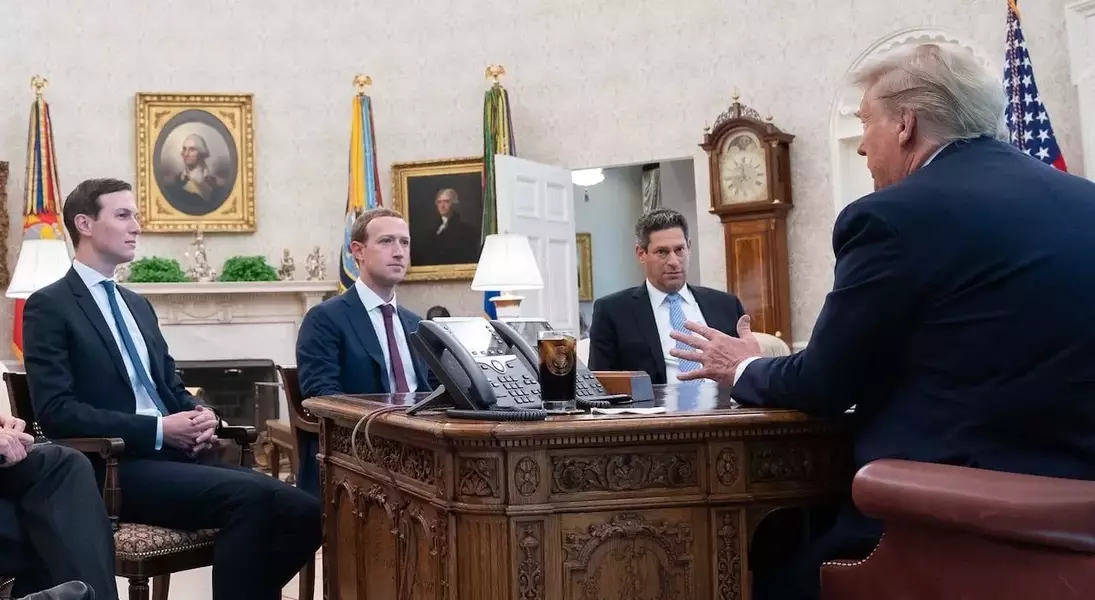In a significant shift of tactics, Meta Platforms Inc. is now openly considering leveraging the influence of former President Donald Trump to counter what it perceives as unfair regulatory actions by European authorities. Joel Kaplan, Meta’s chief of global affairs, recently addressed this strategy at the Munich Security Conference, signaling a new approach in dealing with international regulators. This move reflects growing tensions between American tech giants and European policymakers over issues ranging from data privacy to antitrust concerns.
Empowering Tech Giants: A New Era of Regulatory Pushback
The Changing Dynamics of International Regulation
The landscape of international regulation has been evolving rapidly, especially for tech companies like Meta. In recent years, European Union regulators have imposed stringent measures aimed at protecting consumer rights and ensuring fair competition. These regulations have led to substantial fines and investigations into major tech firms. Meta, under the leadership of Joel Kaplan, has voiced its concerns about these actions, suggesting that they may escalate matters by involving higher political powers.Kaplan’s statement at the Munich Security Conference highlighted Meta’s willingness to engage not just legally but also politically. By hinting at potential involvement from the Trump administration, Meta is sending a clear message to EU regulators: continued aggressive enforcement could lead to broader geopolitical implications. This strategic pivot underscores the company’s determination to protect its interests on a global scale.Meta's Regulatory Battles in Europe
Meta has faced numerous challenges in Europe, particularly concerning data protection and market dominance. The General Data Protection Regulation (GDPR) has resulted in hefty fines for Meta, totaling over $3 million. Additionally, the company is under investigation for allegedly failing to safeguard minors on its platforms. These penalties reflect the EU’s commitment to holding multinational corporations accountable for their practices.However, Meta’s response to these challenges has been multifaceted. The company has made concessions, such as opening up its Facebook Marketplace to third-party competitors following an antitrust fine. Yet, this move can be seen as a strategic adjustment rather than a genuine change in business philosophy. Critics argue that Meta could avoid many of these issues by adhering more closely to existing laws and regulations.The Role of Political Influence
The relationship between Meta and political figures, particularly those aligned with conservative ideologies, has become increasingly important. Former President Donald Trump, known for his support of American businesses, has expressed dissatisfaction with EU policies toward U.S. tech companies. His statements at the World Economic Forum echoed sentiments favorable to Meta’s position, labeling EU fines as a form of taxation and indicating potential backing for the company’s stance.This alignment with Trump’s rhetoric is not coincidental. Mark Zuckerberg has cultivated relationships with influential Republicans, including visits to Mar-a-Lago and adjustments to platform policies that align with Trump’s agenda. Kaplan’s promotion within Meta further solidifies this connection, positioning the company to leverage political clout in its favor. This approach highlights the complex interplay between corporate interests and political power in shaping regulatory outcomes.Navigating the Future of Tech Regulation
As Meta continues to navigate the challenging waters of international regulation, its strategy of invoking political support from high-profile figures like Trump sets a precedent for other tech giants. The company’s willingness to challenge perceived injustices through both legal and political channels demonstrates a proactive approach to maintaining its global dominance.However, this strategy also raises questions about the balance between corporate influence and regulatory fairness. While Meta seeks to protect its interests, it must also consider the broader implications of its actions on trust and public perception. The ongoing dialogue between tech companies and regulators will undoubtedly shape the future of digital governance, influencing how businesses operate across borders and interact with diverse legal frameworks.You May Like

